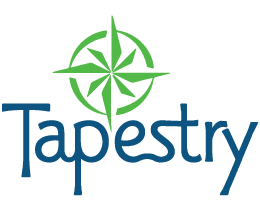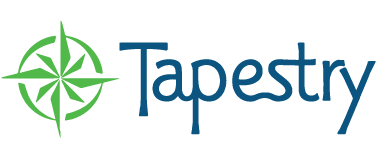LOWER SCHOOL PARENTS & STUDENTS
School Menus & Student Nutrition
Health & Guidance Office
Tapestry K-4 Math Website
Arrival and Dismissal
Students are expected to honor the compass traits and respect Tapestry building spaces at all times. Parking lot safety includes use of sidewalks on the perimeter. No students will be admitted to the building prior to 7:30am. Breakfast is provided for students as necessary. No beverages or foods (except water in a clear container or lunch in sealed container) may leave the dining room after breakfast.
Dismissal
Students begin to be dismissed at 2:30pm. Parents who pick up their children will pull around in our parking lot loop, a staffer will enter their child in our dismissal system, and their child will be dismissed from their room to the car. There will be staffers at the front of the building assisting students into vehicles. Please place your dismissal placard in a prominent location on your dashboard.
After School Clubs
The YMCA of Buffalo/Niagara conducts and after school program which is offered as a service to our Tapestry families for an additional fee.
Club offerings vary each trimester. Some of the Tapestry Charter School clubs offered in the past have been:
- Chorus Club
- Dance Company Club
- Boys on the Right Track
- Girls on the Run
- 2nd Gen Theatre Company Club
- Athletic Club
- Spanish Club
- S.T.E.A.M Club
Parent Portal
Tapestry provides access to your child’s food service account, including transactions and balance, his/her attendance record and a school bulletin through the PowerSchool Parent Portal. Use your confidential user name and password to log in to PowerSchool.
Check your student’s lunch balance here!
Please note that each child’s account requires a unique username and password. For security purposes, please do not divulge your log-in information to anyone, including your child. If you have questions about PowerSchool access or have misplaced your log-in information, please contact the school office.
Absence Excuse Form
Absences may be excused in two ways: via our online form below or by sending in a signed note detailing a valid excuse. Please note: teachers may not excuse absences. Administrative staffers perform this task in our attendance system.
Principal’s Advisory Group
The Principal’s Advisory Group (PAG) serves as a consultative body to assist the principal and administration in making decisions that reflect the interests of parents, faculty, and students. Subcommittees of the PAG have been established to address topics that are considered important by TCS parents/guardians. Community voice is encouraged in such areas as the setting and maintaining of school policies, the hiring of staff, the raising of funds, and the setting of priorities for use of funds. The PAG includes at least two representatives from each of the following groups: parents, students, and faculty, as well as administrative presence.
Meetings will be held regularly, oftentimes after community meetings, in the main office conference room. Please contact the main office for additional information.
- September 26
- October – no meeting
- November TBD
- December TBD
- January TBD
- February TBD
- March TBD
- April TBD
- May TBD
Student Led Conferences
Two times during the school year, Tapestry invites students and their families to attend formal conferences. Student-Led Conferences replace the traditional parent/teacher conference and are attended by the student, parent/guardian, crew leader, and other adults the student would like present. The crew teacher facilitates the meeting, but the student is actively engaged in presenting what he/she has learned so far this year.
K-4 Student Led Conferences for 2024-25 will be held on:
- November 25th and 26th
- March 27th and 28th
Family Handbooks and Code of Conduct
Our family handbook provides essential information about how parents, students, teachers and administrators can work together to support our students and meet both academic and behavioral expectations. It also includes important dates, our Code of Conduct and graduation requirements, as well as other policies, procedure and information.
Tapestry’s Code of Conduct, Behavior Expectations, Interventions and Consequences are in compliance with New York State Discipline Laws and Regulations including Schools Against Violence in Education (SAVE) Law, and Dignity For All Students Act (DASA). Tapestry is committed to teaching, modeling and enforcing high standards of conduct in order to ensure that Tapestry is a safe, healthy learning environment for all students and staff.
Health Office
To foster child and adolescent health and educational success, the school nurse at Tapestry Charter School will:
- Provide direct care to students: care for injuries and acute illness for all students and long term management of students with special health care needs;
- Provide leadership for the provision of health services;
- Provide screening and referral for health conditions.
- Promote a healthy physical and emotional school environment: monitoring immunizations, ensuring appropriate exclusion for infectious illnesses, mandated state reporting, participate in plan for prevention and management of bullying, disasters, and terrorism events.
- Promote health: provide health information to individual and groups of students through health education classes, assist in developing a health education curriculum.
- Serve in a leadership role for health policies and programs.
- Act as a liaison between school personnel, family, health care professionals, and the community.
Please reach out to our nurse, Deborah Capitano ([email protected]) regarding any specific concerns you may have regarding your child’s health. For your family’s convenience, the following Health Office forms are available for download. Forms are also available in the K-4 Main Office, upon request.
Dignity for All Students Act (DASA)
What is the Dignity for All Students Act (DASA)?
The Dignity for All Students Act (DASA) took effect July 1, 2012. Its purpose is to provide students with a school environment free of discrimination and harassment by peers and by school personnel. It applies to behaviors on school property, in school buildings, on a school bus, as well as at school-sponsored events or activities. Incidents of harassment and discrimination may include, but are not limited to, threats, intimidation or abuse based on a person’s actual or perceived race, color, weight, national origin, ethnic group, religion, religious practice, disability, sexual orientation, gender (including gender identity or expression), and sex. These eleven categories are referred to as protected classes.
The new law includes provisions that will alter reporting, codes of conduct, professional development, and classroom instruction.
- The Dignity for All Students Act was established with the broad legislative intent to provide a school environment free of discrimination and harassment.
- Prohibits harassment of students on school property or at school functions, and designates many forms of bullying as unlawful discrimination.
Who is the DASA Coordinator for Tapestry Charter Lower School?
Jeanette Tarnowski is the DASA Coordinator and Assistant Principal for the Lower School. She can be reached in the front office by calling (716) 332-0754 or by emailing her at [email protected].
If you would like more information about DASA you can follow this link.
What is bullying?
Bullying is defined as unwanted, aggressive behavior among school aged children that involves a real or perceived power imbalance. The behavior is repeated, or has the potential to be repeated, over time. Bullying includes actions such as making threats, spreading rumors, attacking someone physically or verbally, and excluding someone from a group on purpose.
What is cyberbullying?
Cyberbullying is defined as bullying that takes place using electronic technology. Electronic technology includes devices and equipment such as cell phones, computers, and tablets as well as communication tools including social media sites, text messages, chat, and websites.
- Educators are not expected to “spy” on students’ out-of-school communications. Educational resources should not be used to seek out online communications that are inappropriate.
- But, educators should be willing to step in when cyber bullying affects a students’ ability to function in school.
How can I report an incident where bullying, cyberbullying or harassment has occurred?
A DASA Reporting form can be completed by students, parents, and staff members. If you have witnessed an incident, heard about an incident, or are the target of an incident fill out a DASA Reporting Form. These forms can be downloaded using the link below or found in common areas around the school (classrooms, front office, library, nurse and hallways). The forms can be turned into any staff member or placed in a bin in the front office. All reports are taken seriously and will result in an investigation.
Guidance Office
The Guidance Office provides information and support to students for academic, social, and emotional issues which impact a child’s education. Please reach out to our main office at 716-332-0754 to connect with a member of our student support team.




